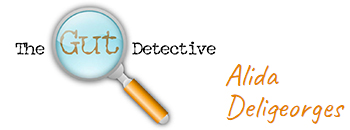
Depression has become the leading cause of disability worldwide.
One in four adults suffer from a diagnosable mental disorder. Many will walk into their doctor’s offices, describe their symptoms in about ten minutes, and walk out with a powerful psychiatric drug.
Did you know a slow thyroid (or hypothyroidism, a condition affecting 200 million people worldwide that typically goes undiagnosed for many years) can mimic the symptoms of depression?
After fatigue and weight issues, mood alterations such as depression, agitation, and anxiety are the most common symptoms in people diagnosed with Hashimoto’s thyroiditis (autoimmune version accounting for ~97% hypothyroid cases).
People with bipolar disorder as well as depressive and anxiety disorders have been found to have a higher prevalence of anti-thyroid antibodies. To further complicate the issue, lithium, a medication used for bipolar disorder, can trigger Hashimoto’s.
It is not uncommon for Hashimoto’s sufferers to say that they feel like they are going ‘crazy’.
Many people visit the doctor because of thyroid-related symptoms (and there are many!) and end up with multiple prescriptions – perhaps a thyroid medication, a cholesterol-lowering drug, a sleeping pill, and of course, an anti-depressant.
But not all is well with our pharmacological approach to mood disorders (or thyroid disorders for that matter).
Granted, when appropriate, prescription drugs have their place in medicine. The correct medication can save lives and return severely sick people to good health. But covering up symptoms while ignoring their cause is rarely the long-term solution for depression (or any condition really).
Sadly, the information that doctors give out is based first on their bottom line, and second on what is actually in their patient’s best interest. Medical establishments profit by keeping patients dependent on their expert advice and latest ‘scientific’ research.
Further, drug companies certainly do not have the consumers best interest in mind. With 70% of Australians taking at least one prescription drug, and more than 50% taking two or more – to the tune of $250 billion+ per year – Big Pharma is laughing all the way to the bank.
Drug companies have been known to manipulate the science in myriad ways. Psychiatric studies are four times more likely to be funded if they show positive results, with null and negative findings rarely, if ever, published as a result.
So in the meantime, patients are told the promise of a ‘happy pill’ which can treat brain imbalance. The story goes something like this…
“You’re depressed because you’re missing a chemical that influences mood in a way that leads to depression. All you have to do is take a little tablet every day and you’ll be as good as new in no time”.
That missing chemical is known as serotonin (our ‘happy’ neurotransmitter). Some antidepressants, specifically the selective serotonin reuptake inhibitors (SSRIs), are said to keep more of this chemical hanging around in the brain, thus their mood-boosting effects.
But, neuroscience hasn’t yet been able to describe what a ‘balanced’ brain looks like, let alone how to assess one. So how can we claim to create it with drugs?
In most cases, psychiatric symptoms are just that: symptoms. They are signs that the body and mind are struggling.
What we do know is that taking these types of drugs doesn’t resolve the underlying cause. It just creates a chemically-induced ‘new-normal’, which is anything but normal.
In addition, harsh side effects are often ignored and stopping is not a simple process.
Doctors offer little or no support for patients hoping to go off the drugs they prescribe. The journey back to the patient’s original state can be so fraught that it is frequently characterised as a relapse. It is difficult to find an experienced doctor who can help a patient get off the pharmaceutical merry-go-round with patience, compassion, real knowledge about how to taper medications, and lifestyle recommendations to support a new approach.
The Truth Is That Depression Isn’t A Disease
– It’s A Message!
So what is the body so desperately trying to tell us? It is screaming out that it is INFLAMED!
Inflammation is the driving force behind the symptoms that we try to squash with medications.
It signals danger in the body which translates to the brain and wreaks havoc. That’s the bad news.
Inflammation:
- is the primary driver of chronic illness
- influences how neurochemicals are produced (80% serotonin produced in the gut)
- has negative effects on mitochondria (energy production) and apoptosis (cell death)
- impacts the feedback systems around stress hormones, such as cortisol
- elevates cytokines (pro-inflammatory), making the person even more depressed
The good news is that your gut is the gatekeeper of inflammatory responses. And thankfully we know much about the gut nowadays.
Our gastrointestinal tract houses at least 70% of our immune system.
The gut can become inflamed for many reasons – read my GUT & DISEASE article for more information.
Resultant gut inflammation then transfers information to the nervous system, via stimulation of the vagus nerve, linking the gut and the brain (known as the gut-brain connection).
We know how to heal the gut. And if we heal the gut, we can also heal the depression.
Here are 3 ways that you can reduce inflammation and optimise gut health, creating a happier body and healthier moods.
- Eliminate Processed Foods And Food Toxins From Your Diet
Broadly speaking, avoid anything in a package. More specifically, avoid anything that contains more than one to three ingredients, including:
– hydrogenated vegetable oils
– preservatives
– dyes
– emulsifiers, tenderizers, and taste enhancers
– sugars
– dairy
Processed food is full of chemicals so that it is portable and shelf-stable. It is manipulated for texture and taste. It also tends to be polluted with toxins, such as pesticides.
Buy organic whenever possible also.
- Add Whole Foods, Good Fats, And Therapeutic Foods To Your Diet
Once you have eliminated processed (bagged and boxed) foods with long ingredients, you’re left with whole, simple foods that often don’t even come with a nutrition facts label such as:
– fresh fruits and vegetables, including root vegetables and avocado
– pastured meats, wild fish, eggs, nuts, and seeds
– traditional fats like olive oil, coconut oil, or grass-fed butter and ghee
As a start, avoid all gluten-containing grains. Eating gluten provokes an inflammatory response in everyone. In about 80% of people, it precipitates intestinal wall changes (or leaky gut) that allows for various compounds, food particles, and bacteria and their immuno-toxic components (e.g. LPS or lipopolysaccharides) to enter the bloodstream.
Quinoa, buckwheat, white rice, and white potatoes may ultimately be fine; however, most people benefit from a temporary 30-day break to really heal first before adding them back in.
Some therapeutic foods include:
– liver powder (multi-vitamin superfood)
– gelatin (high glycine content aids insomnia, anxiety, joints, hair, and skin)
– turmeric (anti-inflammatory, immune modulator & liver detox)
– Himalayan salt (80 minerals for general well-being & to calm nerves): read my TO SALT? OR NOT TO SALT? article for more information
- Add Fermented Foods To Support Gut Ecology
Prebiotics and probiotics are essential to gut health.
Prebiotics are food for probiotics and include foods such as garlic, leeks, onions, dandelion leaves, artichokes, asparagus, banana, legumes, and more.
Probiotics are the beneficial live bacteria that help to keep the ecology of your gut in balance.
Amazingly, probiotics can actually reverse psychiatric symptoms which is powerful information.
Fermented foods are simply probiotic foods, which are both delicious and flavourful. Long before probiotics became available as supplements from health food stores, people in virtually all cultures enjoyed one form of fermented food or another. And there’s no better way to consume a rich array of healthy bacteria than to consume them through wholly natural sources, such as:
– sauerkraut
– pickles
– kimchi and other fermented vegetables
– coconut kefir
If you’re struggling with depression, please know that while it may seem hopeless and feel like there’s nothing you can do to get better, these thoughts and feelings are the furthest from the truth. People do recover from depression, anxiety, and panic attacks by addressing their underlying root causes.
You can get better too. Never lose hope.
Just know that nutrition has more power than any other single intervention on Earth to allow you to be the healthiest and happiest version of yourself.
**If you’ve got this far – thank you for reading and I look forward to bringing you more information in the future.
Now, enjoy some much needed inspirational music…
